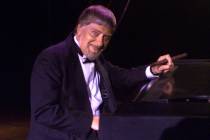Seeing plays not all to be done at Shakespeare fest
Big mistake to go see one play at Cedar City's Utah Shakespeare Festival and then go home. Lots of shows are worth seeing, but the event is much more than seeing a play or two.
Bard.org offers a glimpse of what else there is (much of it for no charge), but my favorite freebie is the preview talks before each production. If you're a Shakespeare buff, you'll find scholars there who will deepen your appreciation. If you're a Shakespeare virgin, you'll get a gentle, amusing introduction. This season, the three non-Shakespeare plays resulted in discussions that revealed amusing tidbits.
Examples from a recent trip:
Monday: Education director Michael Bahr points out that "The Music Man" is a celebration of composer/writer Meredith Willson's childhood. The lead female character, Marian, lived in Provo, Utah.
Tuesday: New plays director Charles Metten shares that Tennessee Williams, author of "The Glass Menagerie," changed his first name to honor his runaway father. Tennessee was the dad's favorite state.
Wednesday: Bahr explains how the backstage farce "Noises Off" came to be. Author Michael Frayn was already an established playwright and decided to write about the things he saw offstage. Performers in the audience who have seen the show say there's practically not a thing in the script that didn't happen to them in one way or another. Bahr painlessly explains some of the features of farce: multiple doors frequently slamming, frenzy activity and a gross exaggeration of reality. He shares a funny moment: The show begins as a rehearsal, with a director frequently stopping the action to correct the performers. An audience member had earlier commented, "Wow! I've never seen a show at the Shakespeare Festival where they stopped the play so many times!"
Thursday: Festival founder Fred Adams begins his "A Midsummer Night's Dream" talk by urging audience members to attend the grove discussion the next morning. "Discuss what you liked, and discuss what you didn't like," he urges. He offers a simple outline of the story, noting that there are four interwoven plots, each with its own style of language. And he points out that one section is a comical version of "Romeo and Juliet." He concludes with, "Don't worry for a moment about understanding it. It's all in English. And if you don't understand it, ask a child near you. Children always understand this play."
Friday: Adams emphasizes that "Richard III" is, at heart, a work of fiction. It's called a history play but has little to do with actual events and characters.
Saturday: Actor Michael Harding doesn't need to say much about "Romeo and Juliet." It's the one Shakespeare script firmly embedded in popular culture. But he does note, "This is not just a place to come and see a play. If we do our job properly, we will provoke something in you. And we want you to share that."
Anthony Del Valle can be reached at vegastheaterchat@aol.com. You can write him c/o Las Vegas Review-Journal, P.O. Box 70, Las Vegas, NV 89125.
Utah Shakespeare Festival 2011 Season
Adams Shakespearean Theatre and the Auditorium Theatre
Cedar City, Utah
Tickets, information: 800-752-9849; bard.org























